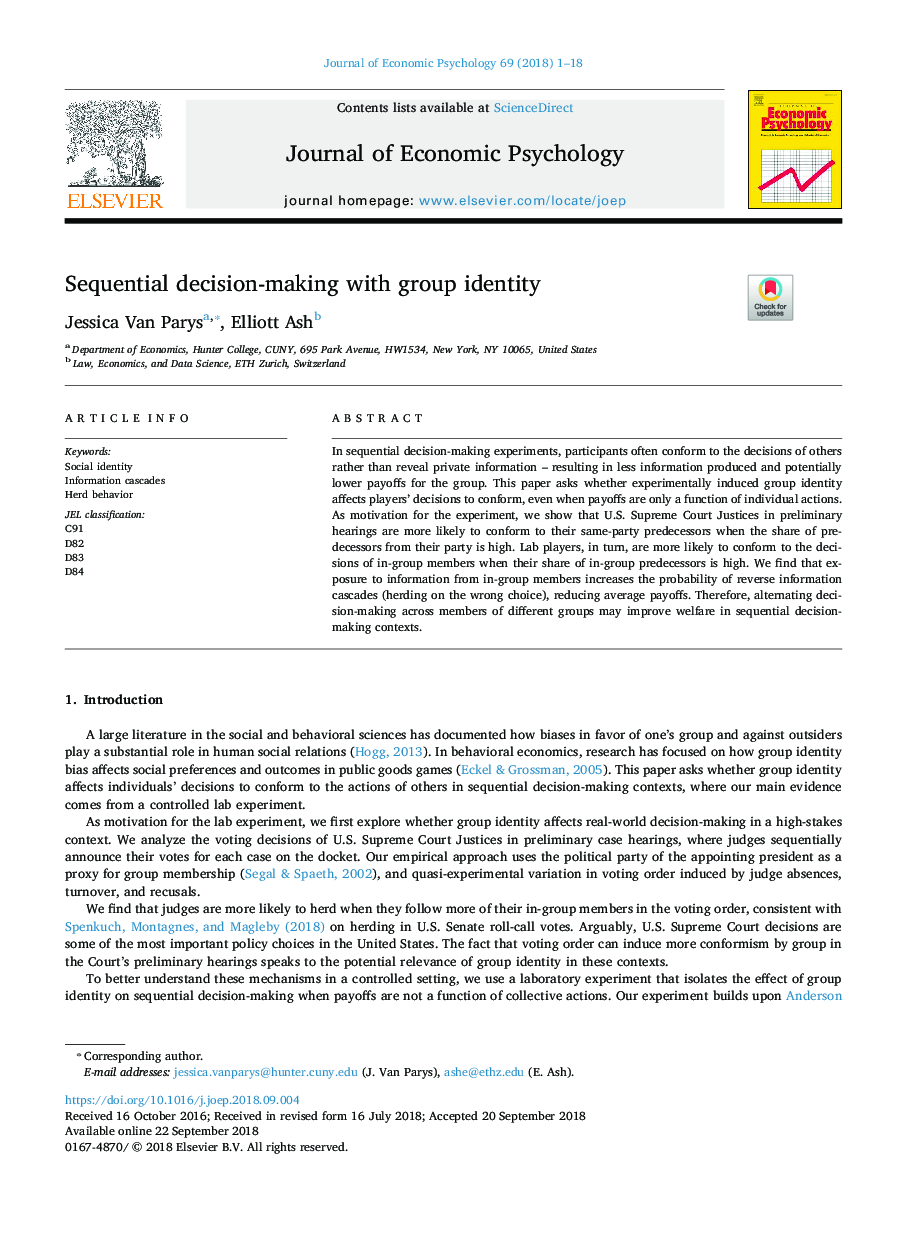| Article ID | Journal | Published Year | Pages | File Type |
|---|---|---|---|---|
| 11016189 | Journal of Economic Psychology | 2018 | 18 Pages |
Abstract
In sequential decision-making experiments, participants often conform to the decisions of others rather than reveal private information - resulting in less information produced and potentially lower payoffs for the group. This paper asks whether experimentally induced group identity affects players' decisions to conform, even when payoffs are only a function of individual actions. As motivation for the experiment, we show that U.S. Supreme Court Justices in preliminary hearings are more likely to conform to their same-party predecessors when the share of predecessors from their party is high. Lab players, in turn, are more likely to conform to the decisions of in-group members when their share of in-group predecessors is high. We find that exposure to information from in-group members increases the probability of reverse information cascades (herding on the wrong choice), reducing average payoffs. Therefore, alternating decision-making across members of different groups may improve welfare in sequential decision-making contexts.
Related Topics
Social Sciences and Humanities
Business, Management and Accounting
Marketing
Authors
Jessica Van Parys, Elliott Ash,
